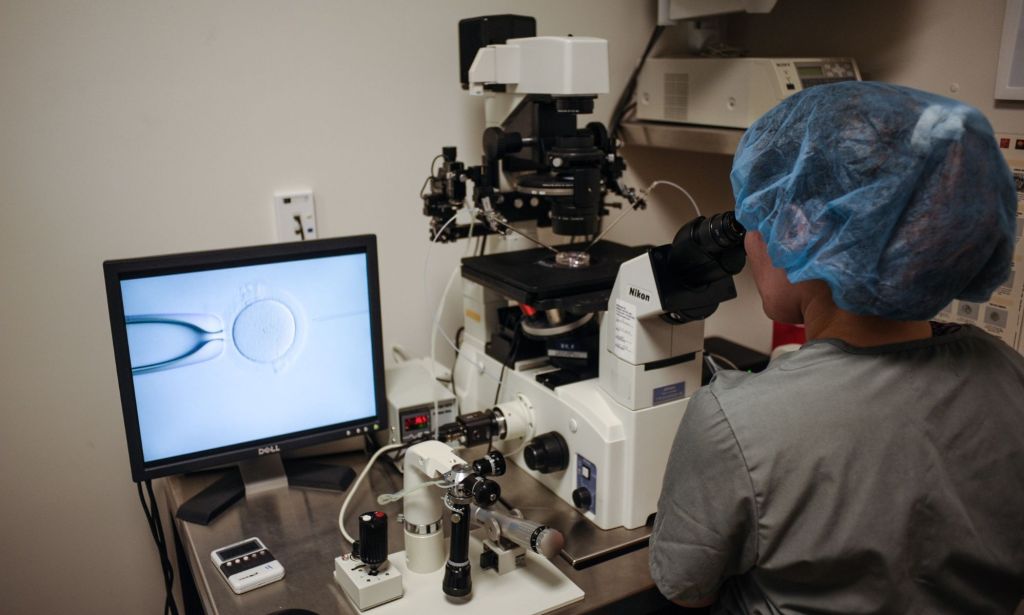Biden slams ‘outrageous’ Alabama court ruling that frozen embryos are ‘children’

President Joe Biden said the Alabama supreme court ruling frozen embryos are “children” is a “direct result of the overturning of Roe v Wade”. (Getty)
President Joe Biden said the Alabama supreme court ruling frozen embryos are "children" is a "direct result of the overturning of Roe v Wade". (Getty)
US president Joe Biden has attacked an Alabama court that ruled fertilised frozen embryos are people.
In a first-of-its-kind ruling, Alabama’s all-Republican supreme court said last week (16 February) that frozen embryos are considered to be children and those who destroy them can be held liable for wrongful death. The decision puts access to in vitro fertilisation (IVF) treatments in the Yellowhammer State in doubt.
At least three providers put the use of IVF on hold while the legal implications of the ruling as assessed.
Now, president Biden has denounced the “outrageous” ruling that puts access to “some fertility treatments for families who are desperately trying to get pregnant” at risk.
He linked the decision to a wider fight for reproductive rights in the US which followed the overturning of landmark abortion case Roe v Wade in 2022 – a move that puts access to abortions in peril in several states.
“The disregard for women’s ability to make these decisions for themselves and their families is outrageous and unacceptable,” Biden said. “Make no mistake: this is a direct result of the overturning of Roe v Wade.
“I know folks are worried about what they’re seeing happening to women all across America. I am too. I hear about it everywhere I go.”
Biden said his administration was “fighting for the freedom” of people who need reproductive healthcare as well as the doctors who provide such care. He promised not to stop until “we restore the protections of Roe v Wade in federal law” for all people in every state.
The Alabama ruling stemmed from two lawsuits filed by three sets of parents who went through IVF procedures and later decided to have some of their embryos frozen.
According to the ruling, the parents claimed that, in December 2020, a patient at a hospital in the city of Mobile entered the area where frozen embryos were stored, removing several of them from the cryogenic nursery and dropping them on the floor, destroying them.
The parents sued for wrongful death and took their case all the way to the state supreme court.
In his concurring opinion, Alabama chief justice Tom Parker wrote: “Even before birth, all human beings bear the image of God, and their lives cannot be destroyed without effacing his glory.
“The people of Alabama have declared the public policy of this state to be that unborn human life is sacred. We believe that each human being, from the moment of conception, is made in the image of God, created by him to reflect his likeness.”

According to Pew Research Center survey last year, 42 per cent of American adults said they either used fertility treatments or personally knew someone who had. Almost 14 per cent of those questioned had used artificial insemination, and two per cent had used IVF.
Dr Paula Amato, the president of the American Society for Reproductive Medicine, told the The New York Times that the Alabama ruling was “very concerning”. Patients could face additional medical and financial challenges if the decision hindered the freezing of embryos, she said.
“It will disproportionately affect lower-income people, people of colour and people in LGBT communities,” she added.
IVF and other fertility treatments have been used by LGBTQ+ couples and single parents to expand their families.
For LGBTQ+ couples, the path to parenthood can be long and difficult, given that they face entrenched inequality in how the care is provided by health insurers and employers. Additionally, the costs of conceiving via fertility treatments can be high for LGBTQ+ couples.

